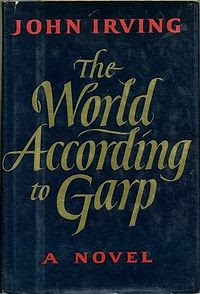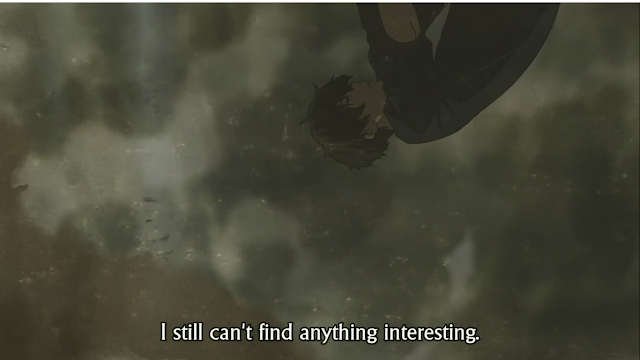Garp.
I have been introduced to John Irving’s works a bit late in
life: I had developed a certain resistance to easier impressionability, or I
would have liked to think so. In many
ways I am self-contradictory, and in more levels my recognition of this
thrives.
Upon reading The World According to Garp I was hit with another level of how I am self-contradictory, and I write, more or less, from the first lines, with a consistent performative contradiction, as I do now.
The realization hit the way only a hindsight hits: thus I am somehow an impossible person, for
all my realizations hit with the element of memory. It is as if I am doomed over and over to say
“I already know this, but it is just now that I know that I know this this
consciously.” My memory will be my
undoing, perhaps. Or my infuriating
stubbornness, which can sometimes be the same thing. Perhaps I have developed a resistance to
impressionability so much that when I do learn, I do so more by a bastardized
anachronistic osmosis and hence am now – and will be, I suspect strongly,
retarded in my growth.
The realization was, characters in books are constructed
like people, but only so. Real people –
and sparing my philosophical box its regular use – are rarely as directional
and as definite as characters.
Characters have to be: else the story would not have a plot; the story
would not end. They are defined from the
onset and throughout the book, which is limited to a number of pages, and by events
that are worth telling. The book disregards all else. That is perhaps why
we relate to characters, to so many different ones in different books,
precisely because they are necessarily limited to a characteristic the
complexity of which is lesser than a real person’s. Perhaps this is why the Barnum effect
exists. People are more complicated than
characters, and in relating to one at one point they manage to fragment
themselves into categories, which is a more manageable way of looking at a
thing so intricate and convoluted as a self.
Perhaps this is also why the best-written books are those that have
characters that are complex: at one point they remind us of how we are also
self-contradictory more often than we think, and eventually frighten us how
real characters can come close to resembling people, especially ourselves. We can know ourselves, even without knowing
that we do; but to see ourselves written on paper from another’s hand is
unsettling. It adds a knowledge that was
not there before: now we know that we know.
The book is at once sobering and long, beautifully crafted
and substantial in the way the ground is substantial. Had I been in any other speed, the book would
have been lethal, the way the ground is lethal, like Kundera had been lethal. I appreciate it more for its sobriety than
anything else: it reminded me of what it is like to be real, and be human
again. I have been too immersed in beer
to read much. I have held on to glass
instead of paper for a long time to have not thought of myself as more complex
than a drunk in a book, or a depressed victim suffering now from
self-mangling. It is a sobering book,
and a lesson in contradiction delivered in hindsight.



Comments
Post a Comment